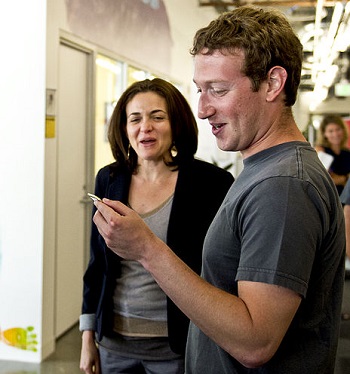BWild |
November 15, 2016
Even though the DTEK50 experienced lower sales than predicted, the struggling handset maker isn’t stopping.
The floundering Canadian handset maker has decided it’s time for yet another BlackBerry keyboard phone. This announcement follows closely on the heels of an announcement from the company that misled much of the world into believing there would be no more BlackBerry smartphones. After that announcement brought the brand into the spotlight, it took care to point out that third party manufacturing would continue to make the branded devices.
Handset makers willing to pay to license the company’s brand will soon put out a keyboarded smartphone.
This new BlackBerry keyboard phone will be coming into the market even though the DTEK50’s results were not at all impressive. The DTEK60 was just released through a collaboration between the company and Alcatel, but figures about the success of that device have yet to be produced at the time of the writing of this article.
 That said, when interviewed by Bloomberg, the company’s CEO, John Chen, gave the official confirmation that another BlackBerry smartphone was on the way. “We have one keyboard phone I promised people. It’s coming,” he said.
That said, when interviewed by Bloomberg, the company’s CEO, John Chen, gave the official confirmation that another BlackBerry smartphone was on the way. “We have one keyboard phone I promised people. It’s coming,” he said.
The official release date of the upcoming BlackBerry keyboard phone was not announced.
Chen said only that it was coming “soon.” Therefore, that could mean that BlackBerry will have a new mobile device on the market during the holiday shopping season.
Another announcement made by Chen during the interview pointed out that there are more companies interested in producing branded smartphones. In fact, he said BlackBerry is currently talking to two different companies about launching smartphones carrying their logo. That said, he did not identify the two companies at the time of their initial mention.
What he did say was that the two companies are based in India and China. He also suggested that the two companies were neck and neck in terms of what they have to offer.
Fans of BlackBerry keyboard phones appear to have some new offerings on the way in the next few months. Despite the fact that the company isn’t making its own mobile devices anymore, other companies seem to be interested in taking over.
The creator of the social network is working hard to fight growing accusations of its role in the election results.
Amidst a rapidly rising body of criticism against Facebook social media marketing, Mark Zuckerberg insists the network isn’t to blame for Donald Trump’s victory. Critics claim that viral fake pro-Trump news stories on Facebook led to the Republican’s election win.
Zuckerberg has responded quite forcefully, saying that he feels the accusation is a “pretty crazy idea.”
Speaking onstage at a recent conference, Zuckerberg addressed the thought that Facebook social media marketing contributed to Donald Trump’s election. “Personally,” he said, “I think the idea that fake news on Facebook, which is a very small amount of the content, influenced the election in any way—I think is a pretty crazy idea. Voters make decisions based on their lived experience.”
Zuckerberg also went on to ask “Why would you think there would be fake news on one side and not the other?”
That has not assuaged the critics insisting Facebook social media marketing doesn’t properly filter fake news.
 Many claim that as the largest social media platform worldwide, viral hoax news posts shared there may have helped Trump to win. The reason, say many, is that Facebook either refuses or is not able to contain the spread of those fake news articles.
Many claim that as the largest social media platform worldwide, viral hoax news posts shared there may have helped Trump to win. The reason, say many, is that Facebook either refuses or is not able to contain the spread of those fake news articles.
Moreover, BuzzFeed News conducted an investigation earlier in 2016 which examined the most right-wing extremely partisan publications published by Facebook pages. They determined that 38 percent of the news shared by those sources was misinformation. That said, when examining the same type of page on the left-wing side, misinformation occurred considerably less: 20 percent of the time.
Those figures may not sound too problematic, but BuzzFeed News also identified another trend with this form of Facebook social media marketing. The stories with the lowest accuracy were the ones BuzzFeed found to generate the largest number of shares and reactions (such as Likes). Inaccurate stories on Facebook pages greatly outperformed publications shared on Facebook pages from more mainstream political news sites. Over the last few months, a rash of hoax news sites were created in order to take advantage of this trend.
 That said, when interviewed by Bloomberg, the company’s CEO, John Chen, gave the official confirmation that another BlackBerry smartphone was on the way. “We have one keyboard phone I promised people. It’s coming,” he said.
That said, when interviewed by Bloomberg, the company’s CEO, John Chen, gave the official confirmation that another BlackBerry smartphone was on the way. “We have one keyboard phone I promised people. It’s coming,” he said.
 Many claim that as the
Many claim that as the 